
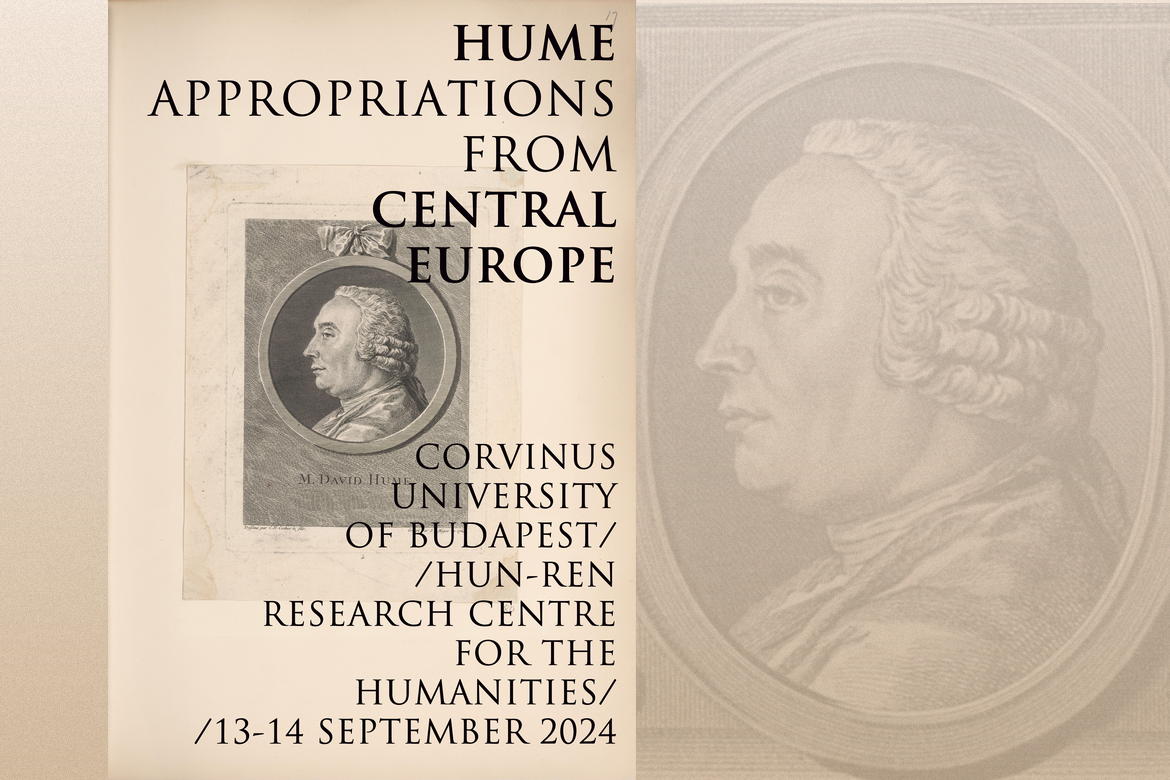
Konferencia: Hume Appropriations from Central Europe
A Budapesti Corvinus Egyetem, a HUN-REN BTK Filozófiai Intézete és a MTA-BTK Lendület Kutatócsoport meghív minden érdeklődőt a
Hume Appropriations from Central Europe
címmel 2024. szeptember 13-14-én megrendezett konferenciájára.
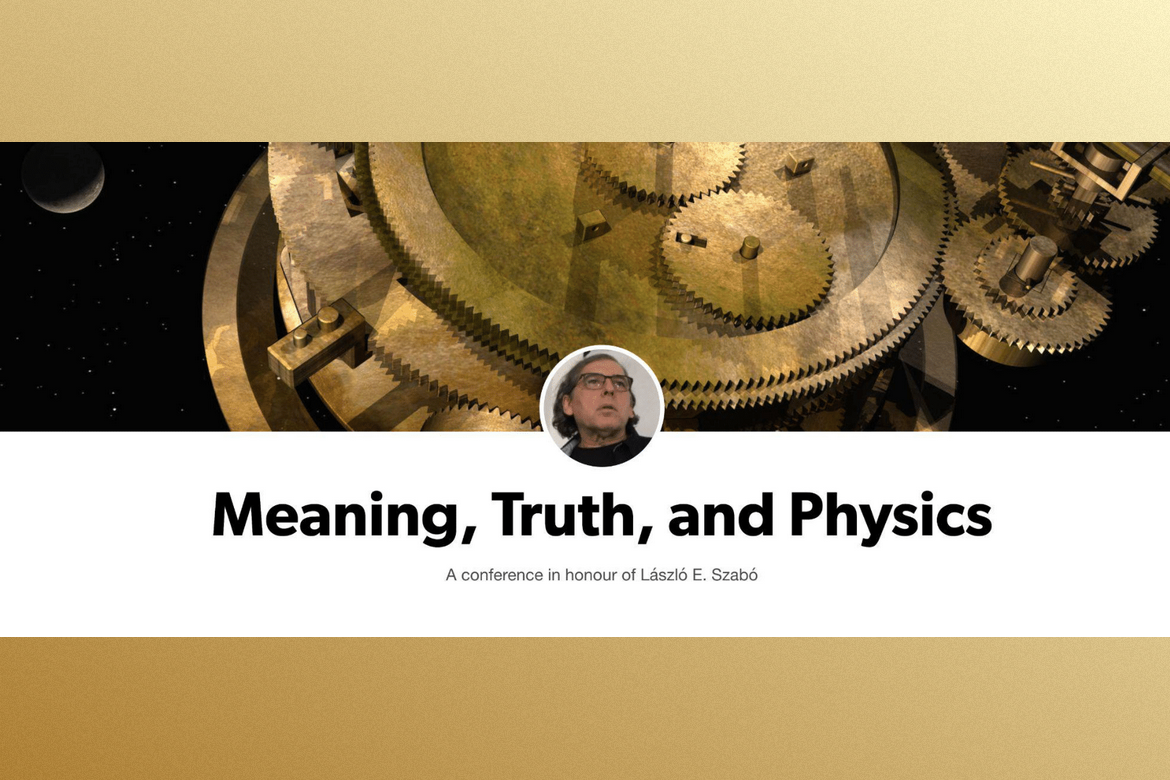
Konferencia: Meaning, Truth, and Physics
A BTK Filozófiai Intézetének Fizika filozófiája kutatócsoportja meghív minden érdeklődőt a 2024. június 7-én, pénteken tartandó nemzetközi konferenciájára, melyet Szabó E. László 70. születésnapja alkalmából rendeznek meg.
A részletes program az alábbi plakáton olvasható.
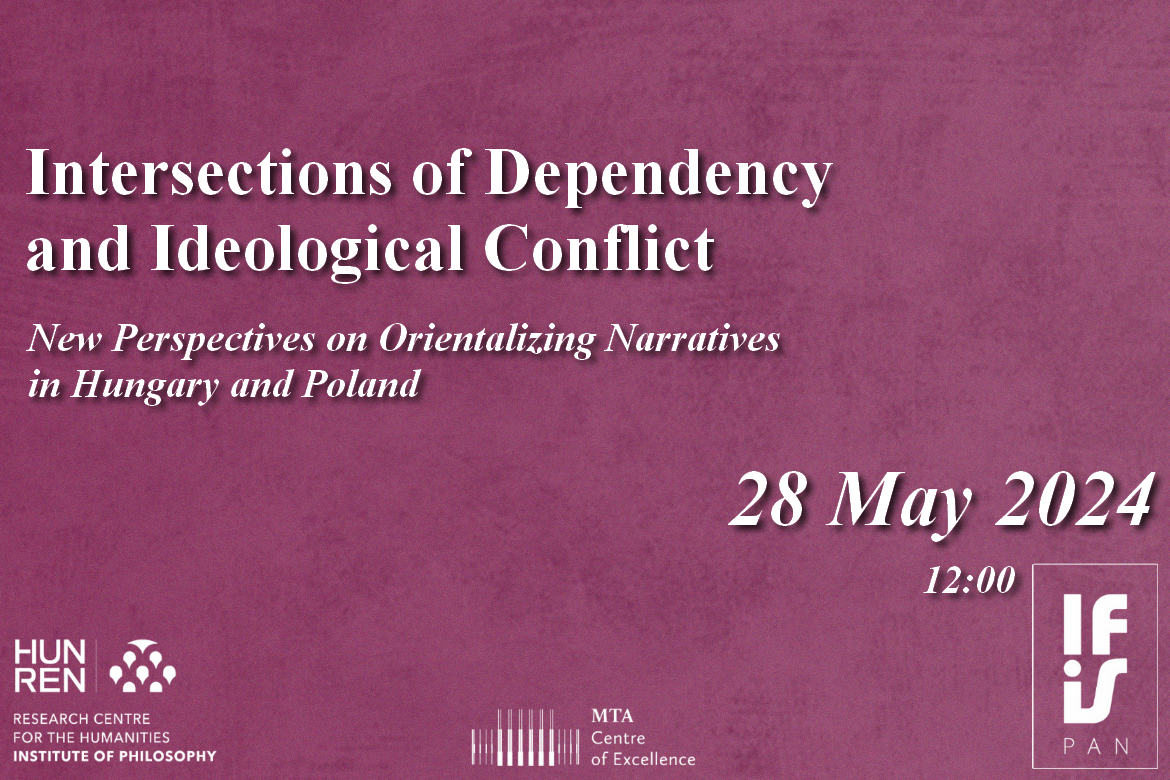
Nemzetközi workshop: Intersections of Dependency and Ideological Conflict
A HUN-REN BTK Filozófiai Intézete tisztelettel meghív mindenkit az Intersections of Dependency and Ideological Conflict. New Perspectives on Orientalizing Narratives in Hungary and Poland című nemzetközi workshopjára. Az esemény az Lengyel Tudományos Akadémia Filozófiai és Szociológiai Intézetével közösen kerül megrendezésre.
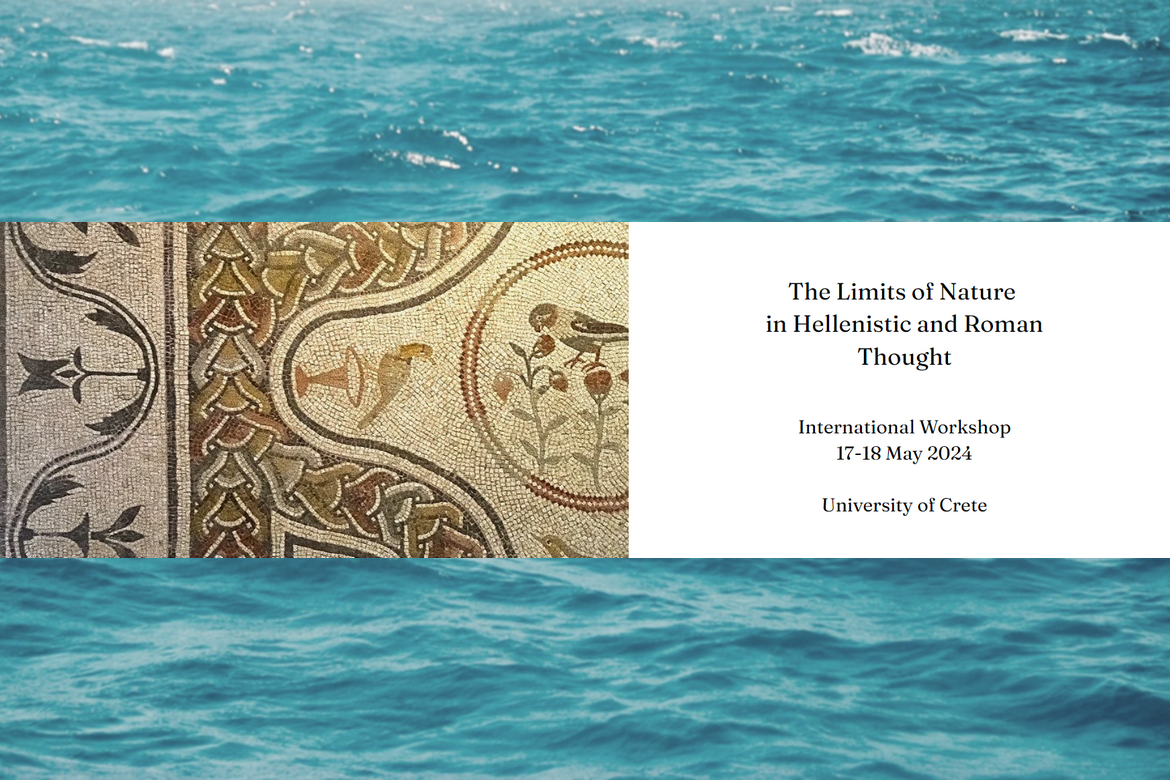
Nemzetközi workshop Krétán
A Forum of Hellenistic and Roman Philosophy szervezésében nemzetközi konferenciára kerül sor a hét végén, a Krétai Egyetem támogatásával. A workshop címe The Limits of Nature in Hellenistic and Roman Thought,főszervezői Németh Attila (HUN-REN BTK FI) és Georgia Tsouni (Department of Philology, Division of Classical Studies, University of Crete).
A részletes programot és az előadások absztraktjait az esemény honlapján olvashatják.

MI és művészetek konferencia Egerben
Az Eszterházy Károly Katolikus Egyetem Matematikai és Informatikai Intézete, Képzőművészeti és Művészetelméleti Intézete, valamint a HUN-REN Bölcsészettudományi Kutatóközpont Filozófiai Intézete konferenciát szervez A mesterséges intelligencia és a művészetek címmel.
Időpont: 2024. május 2-3.
Helyszín: Líceum (Eger, Eszterházy tér 1.), földszint 112-es terem.
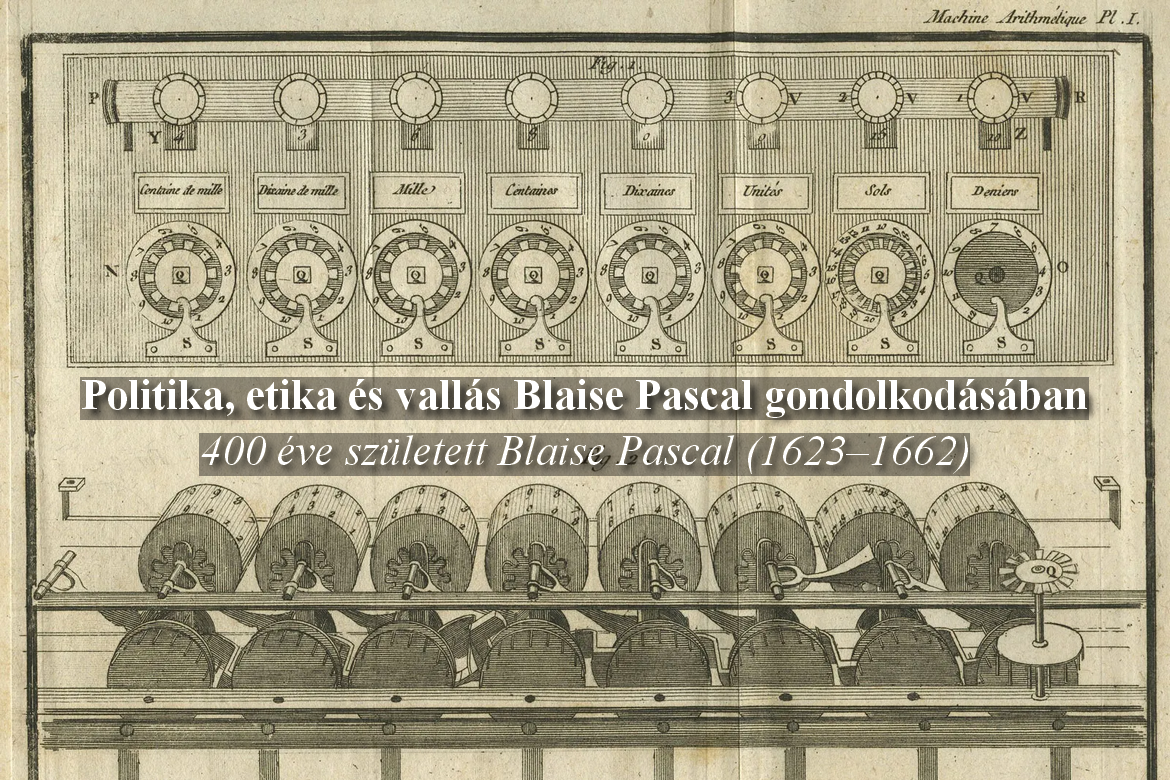
Politika, etika és vallás Blaise Pascal gondolkodásában
A Pázmány Péter Katolikus Egyetem Filozófia Tanszéke és a HUN-REN Bölcsészettudományi Kutatóközpont Filozófiai Intézete meghív minden érdeklődőt a Politika, etika és vallás Blaise Pascal gondolkodásában - 400 éve született Blaise Pascal (1623–1662) című, közösen rendezett konferenciájára.
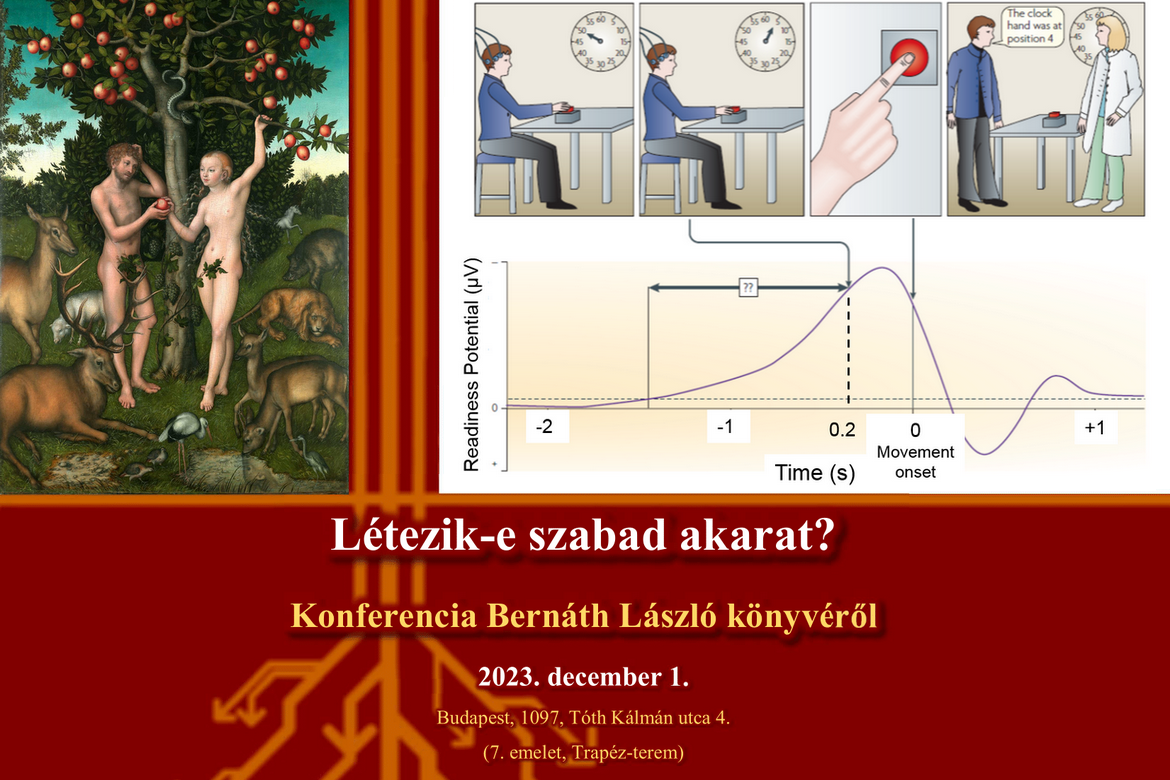
Létezik-e szabad akarat? Konferencia Bernáth László könyvéről
A Bölcsészettudományi Kutatóközpont Filozófiai Intézete meghív minden érdeklődőt Létezik-e szabad akarat? Konferencia Bernáth László könyvéről címmel megrendezett rendezvényére.
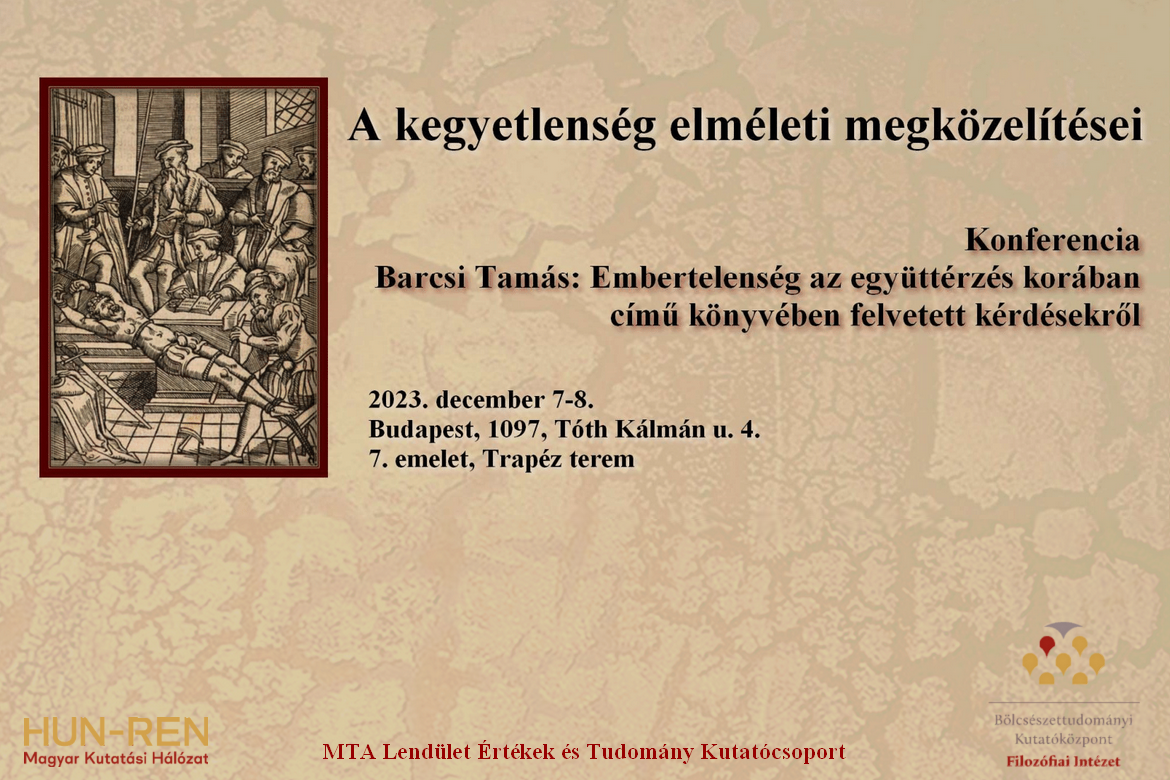
A kegyetlenség elméleti megközelítései. Konferencia Barcsi Tamás könyvében felvetett kérdésekről
A Bölcsészettudományi Kutatóközpont Filozófiai Intézetének Lendület Értékek és Tudomány Kutatócsoportja meghív minden érdeklődőt A kegyetlenség elméleti megközelítései. Konferencia Barcsi Tamás: Embertelenség az együttérzés korában című könyvében felvetett kérdésekről címmel megrendezett rendezvényére.
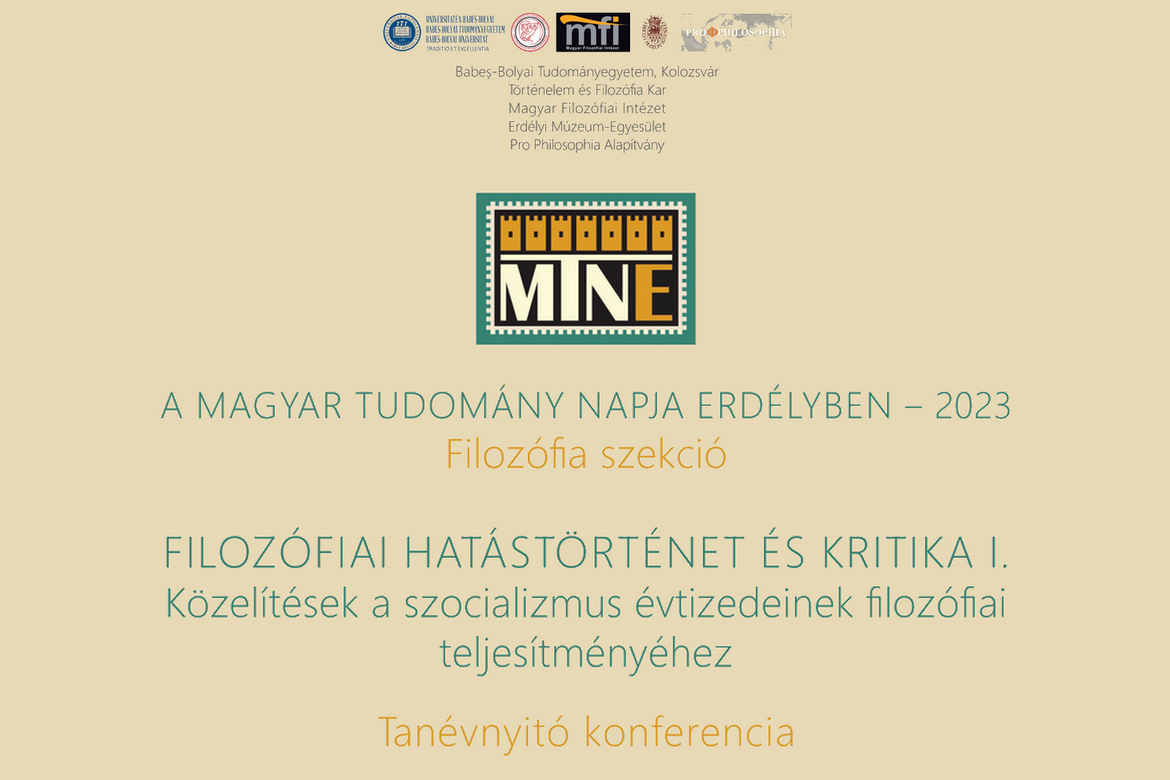
A BTK kutatói is előadnak a Babes‒Bolyai Tudományegyetemen
A Filozófiai Intézet több kutatója is előad Kolozsváron, a Babes‒Bolyai Tudományegyetem Magyar Filozófiai Intézetének idei tanévnyitó konferenciáján, mely 2023. november 18-án kerül megrendezésre Filozófiai hatástörténet és kritika I. Közelítések a szocializmus évtizedeinek filozófiai teljesítményéhez címmel.
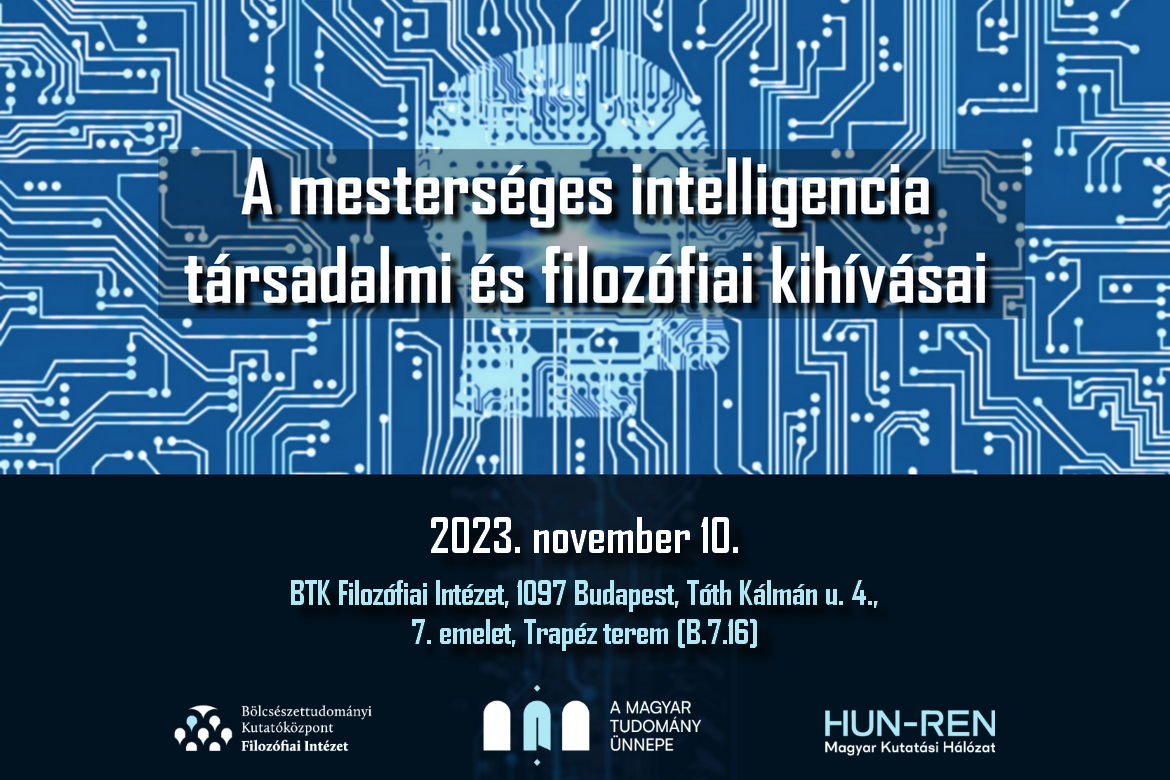
A mesterséges intelligencia társadalmi és filozófiai kihívásai
A Bölcsészettudományi Kutatóközpont Filozófiai Intézetének Ismeretelméleti osztálya meghív minden érdeklődőt A mesterséges intelligencia társadalmi és filozófiai kihívásai címmel megrendezett workshopjára.
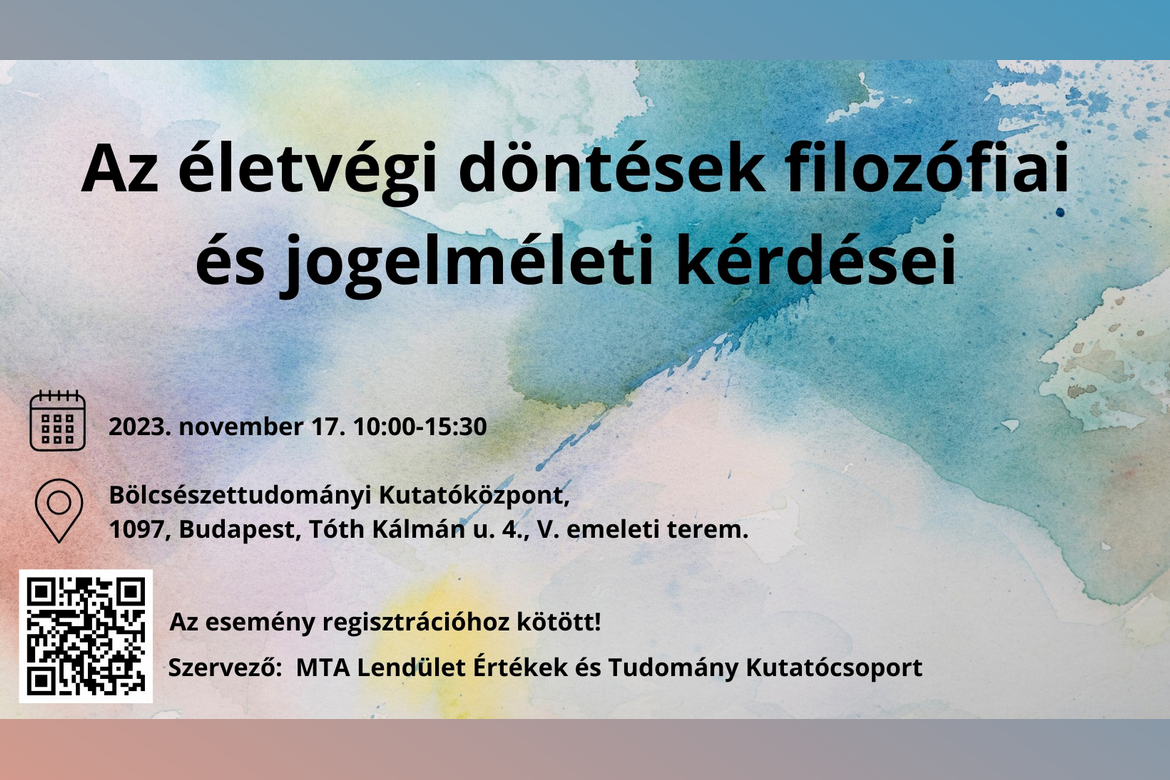
Az életvégi döntések filozófiai és jogelméleti kérdései
A Bölcsészettudományi Kutatóközpont Filozófiai Intézetének Lendület Értékek és Tudomány Kutatócsoportja meghív minden érdeklődőt Az életvégi döntések filozófiai és jogelméleti kérdései címmel megrendezett workshopjára.
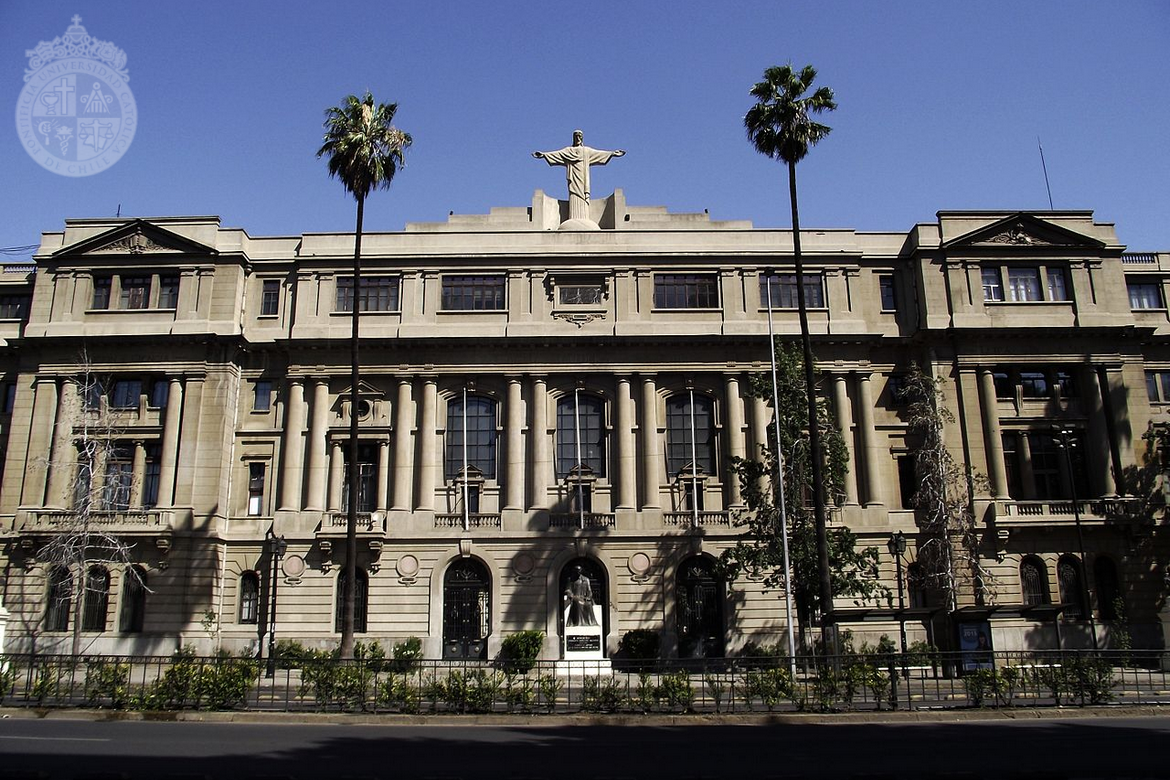
Hörcher Ferenc természetjogi konferencián vesz részt Chilében
Hörcher Ferenc november 9 és 10-én a Chilei Katolikus Egyetem vendégeként vesz részt az intézmény által szervezett természetjogi konferencián.
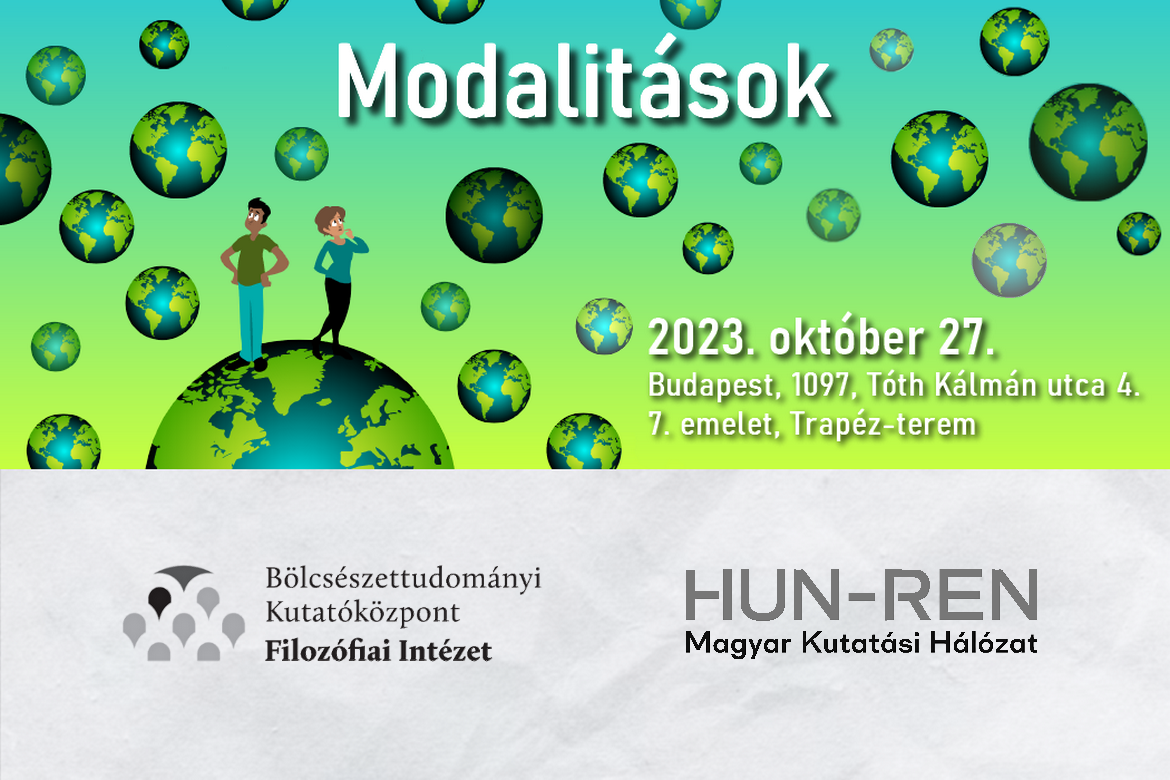
Konferencia: Modalitások
A Bölcsészettudományi Kutatóközpont Filozófiai Intézete meghív minden érdeklődőt a Modalitások című konferenciájára, mely az Ismeretelmélet Osztály és az Értékek és Tudomány Kutatócsoport közös szervezésében kerül megrendezésre. A részletes program lentebb olvasható.
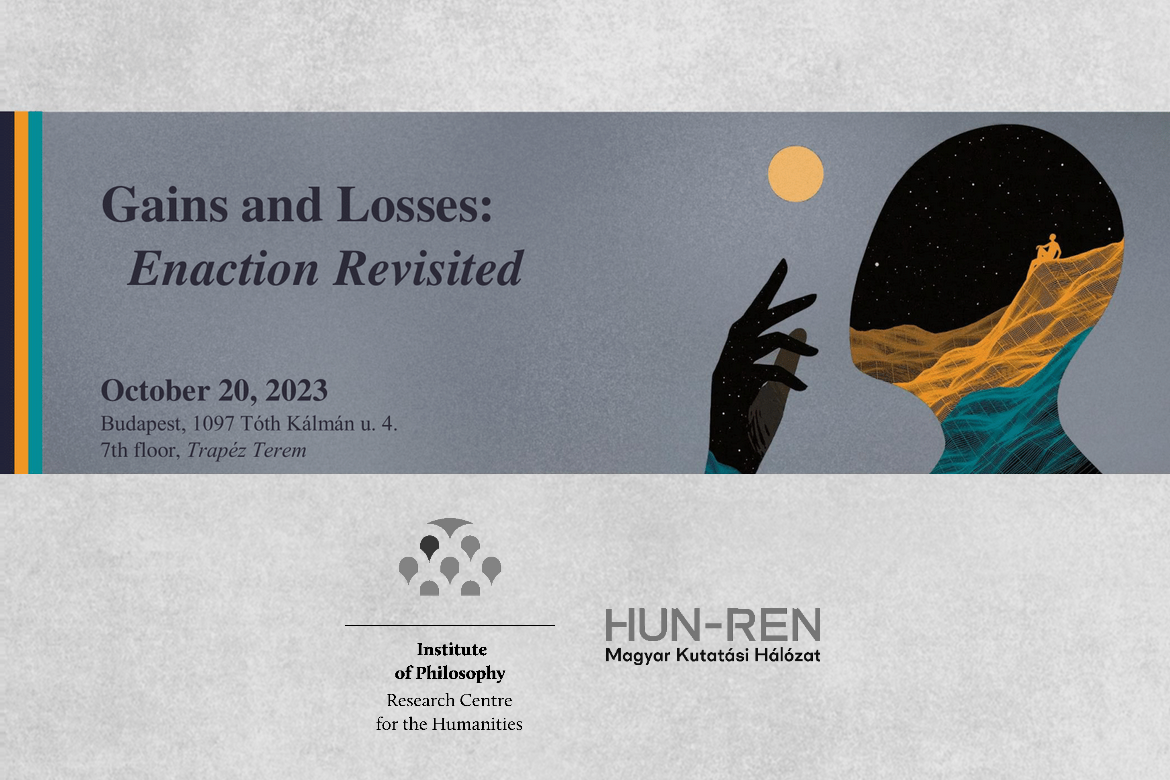
Gains and Losses: Enaction Revisited
A Bölcsészettudományi Kutatóközpont Filozófiai Intézetének Ismeretelméleti osztálya meghív minden érdeklődőt a Gains and Losses: Enaction Revisited címmel megrendezett workshopjára.
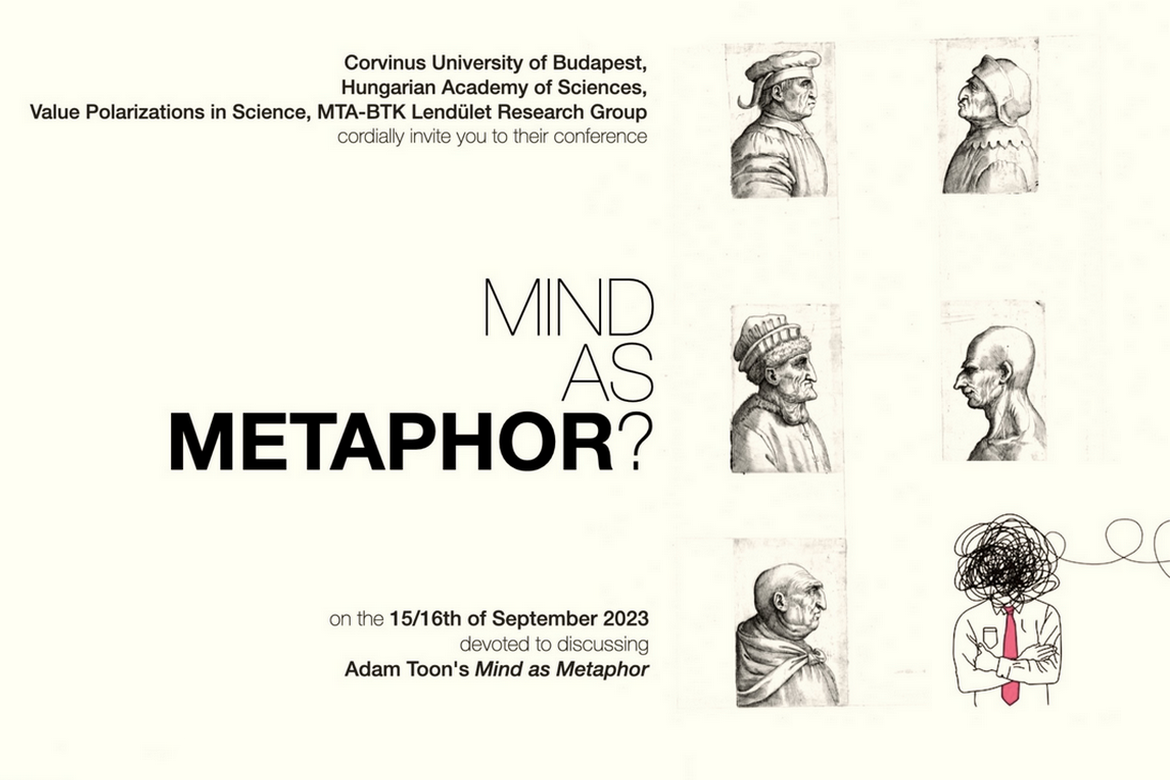
Konferencia: Mind as Metaphor?
A Budapesti Corvinus Egyetem, a Magyar Tudományos Akadémia, és a Value Polarizations in Science, MTA-BTK Lendület Kutatócsoport meghív minden érdeklődőt a
MIND AS METAPHOR?
címmel megrendezett konferenciájára, melynek keretében Adam Toon Mind as Metaphor című könyve kerül megvitatása.
Intézet
Kapcsolat
Cím
1097 Budapest
Tóth Kálmán utca 4.
Telefon
+36 1 224 6778
Copyright © 2013–2025. Minden jog fenntartva.
Oldaltérkép


